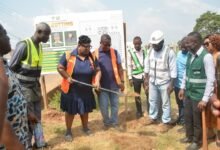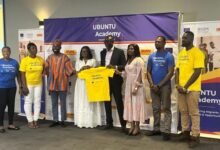120 teenager mothers in U\E access formal education after procreation

LifeAgain, a non-governmental organisation in the Upper West Region, has assisted 120 teenage mothers in the region to access formal education and skills training since 2020.
The girls were either sent back to school to continue with their education which was truncated by unplanned pregnancies, learn a trade or made to undergo crafts apprenticeship.
The aim of LifeAgainis to provide meaningful livelihood to victims of teenage pregnancies and ensured that they were empowered tocontribute substantially to national development.
This was made known by the Chief Executive Officer of the LifeAgain, Ms Saudatu Mohammed, during a teenage mothers’ leadership conference at Wa, the regional capital of the Upper Region on Tuesday.
The CEO said that the organisation identified persons who were within the ages of 12 and 20 and had given birth without any support and had to be provided with assistance, depending on the preference of the individual.
“We realised that some of our beneficiaries are still very young and can go back to school, so we enrolled them in schools either at the junior or senior high levels depending on their abilities,” she stated.
She also explained that some other beneficiaries were undergoing apprenticeship as dress makers and hair dressers, whereas others opted to learn skills such as soap making, cream making, among others which they sold to make a living.
Ms Mohammed said her quest to help teenage mothers attain greater heights in society stemmed from the story of two young mothers she encountered in 2017 who she supported to go back to school with her personal savings.
“Interestingly, these teenage mothers performed credibly even though they joined their colleagues after having stayed at home for so long, so I decided to nurture this dream and bring in more beneficiaries and here we are today with 120 of them receiving hope and life again to survive,” she stated.
She said that girls who gave birth at tender ages due to certain circumstances such as peer pressure, curiosity or poverty were still useful and had innate abilities that should be built to redeem them from vulnerability.
“I want to help end the trend where girls who get pregnant are given out for marriage irrespective of their age and potential achievement in life and made to suffer domestic abuse because they haveno skills or education thereby dependent on their abusers,” she added.
The CEO called on donors and international bodies to assist her organisation, so it would widen her tentacles and include more beneficiaries in the intervention.
Some of the beneficiaries who spoke to the Ghanaian Times were excited about the assistance they received from the organisation.
A 16-year-old mother, who had been sent back to school said she had been saved from the scorn and mockery of society and her immediate family who despised her for getting pregnant.
FROM LYDIA DARLINGTON FORDJOUR, WA







